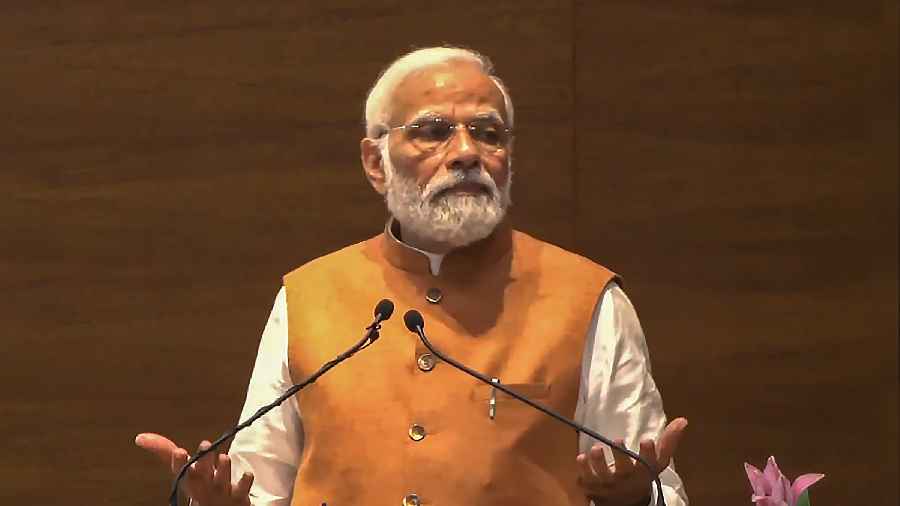There are many good ways to spend Sundays. You could go out with the family, focus on a neglected hobby, take a much-needed mid-day nap, catch up with friends, or watch that Netflix show that’s been on your bucket-list. Or you could do what the Bharatiya Janata Party president, J.P. Nadda, did on March 19: tweet out a cringe-worthy, animated video portraying data from a poll that declared that Narendra Modi is the most popular leader in the world. In many ways, Nadda was following up on a theme that the BJP and its leaders have harped on for years now. In February, Nadda released a book titled Modi: Shaping a Global Order in Flux and, at the launch, claimed that Modi had changed the way the world looks at India.
The global order is certainly in flux and the way the world looks at India might well be changing — though not necessarily in a positive way. But India isn’t shaping the global order. That’s being done by others, while Modi’s team focuses on promoting delusions of his global grandeur to a domestic audience, with the pomp and pageantry that come with the G20 presidency serving as the icing on the propaganda cake.
In just the past 10 days, the Middle East — a region that is home to more than 7 million Indians, the country’s biggest energy suppliers, and some of its top trade partners — has witnessed seismic shifts that appear to have taken New Delhi by surprise. First, China brokered a dramatic agreement between Saudi Arabia and Iran under which the Middle-Eastern arch-rivals agreed to reopen embassies in each other’s capitals and revive a security pact. The deal is a gain for stability in the region, but marks a setback for the United States of America and Israel, both of which view Iran as an enemy. The agreement undermines the Abraham Accords stitched together by the US between Israel and a range of Arab nations. Those accords were premised on Israel and the Arab nations sharing animosity towards Iran.
Then, last week, Saudi Arabia announced that it was reopening its embassy in Damascus after more than a decade of supporting the rebels trying to unseat Syria’s president, Bashar al-Assad. This deal was reportedly mediated by Russia. The Syrian leader — Western allies in the Arab world have long treated him as a pariah — also visited the United Arab Emirates last week, signalling growing warmth with Abu Dhabi.
Like China in particular, India has no bad blood with any of the nations in the Middle East. It does not take ideological positions backing one against the other. It has had warm historical relations with Saudi Arabia, Iran, Syria and other countries in the region. Like China and Russia, India also has strong ties with Israel. Yet despite all of this, New Delhi has far too often — especially in the past decade — allowed Washington’s approach to the region to influence its own moves. Under the former prime minister, Manmohan Singh, India agreed to the Barack Obama administration’s demand for cuts in oil imports from Iran between 2011 and 2013. Then, after the Donald Trump administration in the US pulled out of the nuclear deal with Iran and reimposed tough sanctions on that country, the Modi government meekly ended all oil purchases from Tehran in 2019. It also effectively stalled plans to develop the strategically important Chabahar Port in Iran, once again bowing to US pressure. More recently, it joined a grouping called the I2U2, with Israel, the UAE and the US. Given the central role of the US in getting the UAE and Israel to establish diplomatic ties under the Abraham Accords, the grouping’s priorities are likely to be influenced heavily by US interests.
But the realignment in the Middle East in recent days reveals the folly of relying on US influence — or surrendering to Washington’s threats — in the region. To be sure, the US will remain the most powerful external actor in the Middle East for the foreseeable future. But India needs to stay out of the great power manoeuvring in the region and focus on playing a more proactive role directly by itself. That’s only possible if its leaders stop selling fantasy and face up to the facts.
Charu Sudan Kasturi is a senior journalist who writes on foreign policy and international relations











